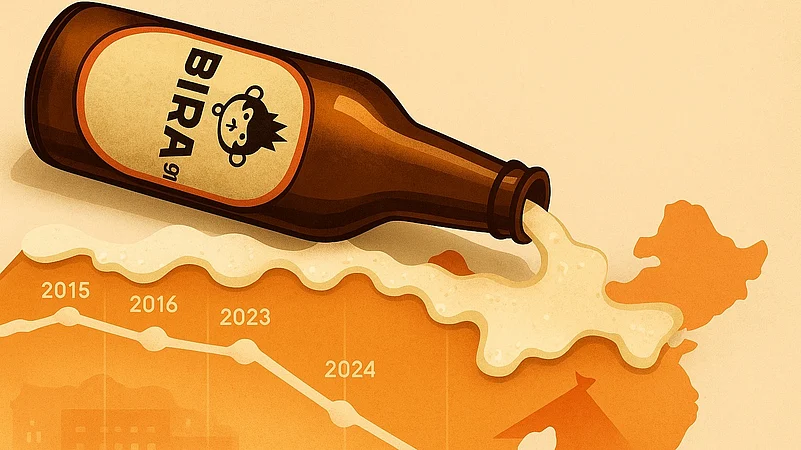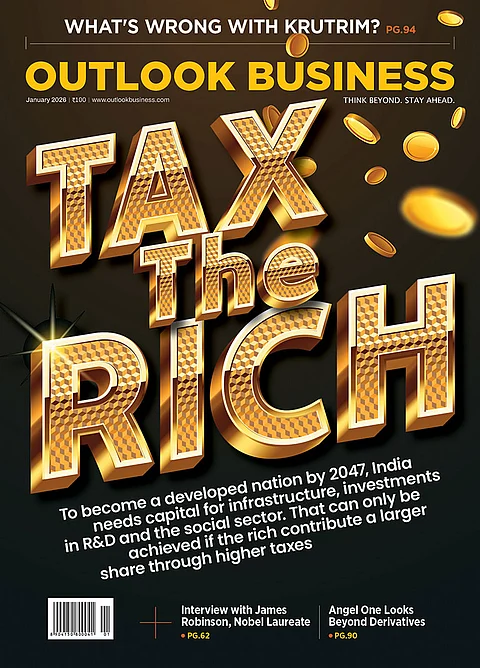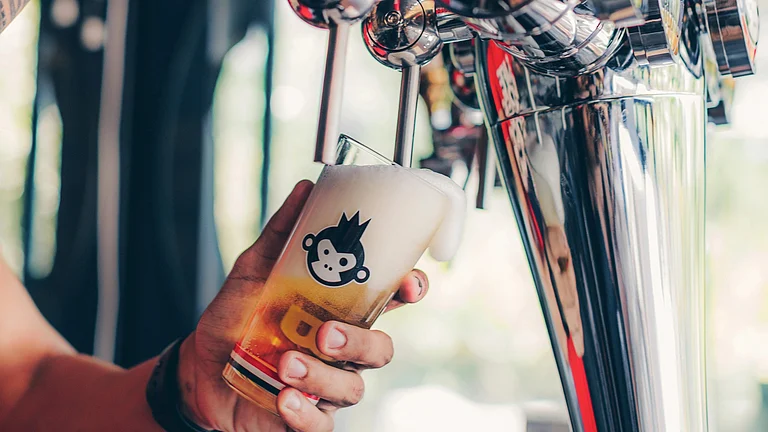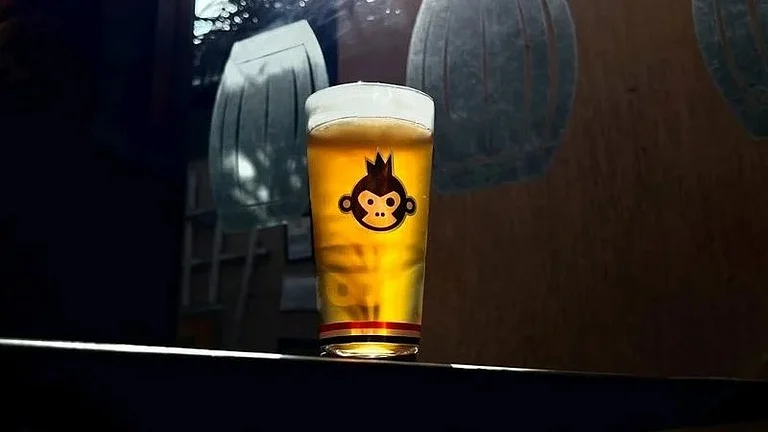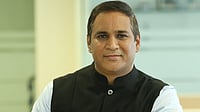
Bira 91’s rapid rise masked severe cash flow and operational issues
Founder Ankur Jain’s centralised leadership and trust deficit worsened management inefficiencies
Key breweries were underutilised, with expired stock affecting sales
A funky monkey mascot, vibrant branding, and playful “Imagined in India” tagline made Bira 91 an instant hit among the urban crowd in India. In just two years since its launch in 2015, beer sales skyrocketed from 150,000 to 700,000 in 2016. It further reached to nine million in 2023, and then came down to nearly six million in 2024.
Bira 91 wasn’t just a beer; it became a lifestyle choice. In short, it became a must-have at bars across the country. The national capital, along with UP even once accounted for around 40% of its sales. The chic craft beer brand sold beers over 550 towns in India and 18 countries. Its revenue also hit Rs 824 crore.
Investors, including Sequoia India (now Peak XV Partners), Kirin Holdings of Japan, Stride Ventures, and others, lined up to infuse their money in the frothy beer brand started by a Worton graduate, Ankur Jain. He turned the company into a bold new face of India’s craft beer movement.
But only after a few years, tables have turned for Bira. It has suddenly disappeared from the shelves. Several media reports suggested that the company’s name change – from ‘B9 beverages private limited’ to ‘B9 beverages limited’ – sealed its fate.
However, Outlook Business had a conversation with some of its previous employees who had spent years with Bira, and it revealed that it was not the actual cause. Then, what led to the fall of India’s most-loved beer.
Cash Was Always a Problem
The company was quietly struggling with the one thing that sustains a brewery --- cash. While its marketing fizzed with energy, the financial tap was running dry, which later seized operations at its breweries.
“The craft beer business is a capital-intensive business. From the very beginning, Bira was always short on working capital — it was always constrained. They kept expanding into new territories without ensuring short-term profitability, which created huge challenges, and that continues even now,” a person familiar with the situation told Outlook Business.
“It launched in 22 countries, sponsored global events, and planned an IPO — but its six outsourced breweries were chronically underutilised, its fixed costs mounting, and its accounts plagued by compliance lapses,” he said.
The same person stated that the brand didn’t show any promise of being EBITDA. He further called the “₹80 crore name change story” a “PR stunt”, while adding that it’s something floated by the founders themselves to distract people from the main concerns.
Another person familiar with the situation said, “The ₹80 crore name change news is just a distraction. The real problem is inefficiency and recurring cash flow shortages”.
Since this is a legal matter, the person believes that the founder must know the repercussions. The real reason: there were six breweries – all outsourced – and not of them had been operating since last year. However, there are rumours that the stock got destroyed due to name change move.
But the name change procedures are not expensive enough for a company size like Bira 91’s. Some recent reports from October 2025 suggest the beer brand’s market capitalisation of around ₹4,370 crore.
“It might cost a few lakhs or crores, but not more than that. In some states, you have to re-register if it’s a private entity. But the thing is – whenever the stock got stuck, they couldn’t sell there. Still, this should have been planned properly. No one makes such a silly mistake is they are actually planning a name change,” he added.
Insiders also pointed out that many of Bira’s plants were already running far below capacity, direct fallout of the ongoing cash crunch. Citing an example, they said the Mysore brewery was operating at less than 20% utilisation. Again, the root cause was working capital shortage.
“There wasn’t a single month that year where production crossed six lakh cases, even though capacity was much higher. Alcohol is a capital-intensive business. Plus, the government is a stakeholder in this industry. Stocks go to government warehouses in many states, and the licensed outlets are billed through them”.
And in 2024, the government did not release payments for many big companies, including Bira, Kingfisher, etc. But many were global players with huge capital reserves, which did not affect their production like Bira’s.
Rapid Growth Plans without Grip
Just like a typical start-up mindset, Bira91’s third for growth also seemed unquenchable. Even as the cash crunch deepened, the company was chasing bigger dreams like hiring top consultants, plotting an IPO, and expanding across borders.
“The company even hired BCG for consultancy. It was a ₹10 crore project focused on improving efficiency. At the same time, they were figuring out how to prepare for a public listing”, industry insiders told us.
When it comes to operations, the brand had full end-to-end control over manufacturing, distribution, and secondary sales through their own on-roll manpower – a strategy that didn’t work well for Bira91. However, other beer companies generally rely on outsourced or third-party staff.
Another major concern, according to the person who spoke on the condition of anonymity, was market expiries. “In most beer companies, expired stock is less than 0.1%. But at Bira, around 5% of total sales volume in Karnataka expired in the market last year”.
“One of the biggest volume drivers for Bira91 was Andhra Pradesh, almost 40% of its total sales came from the state.Under the previous state government, Bira had good terms and certain tie-ups. But when the Chandrababu Naidu government came in, things changed and other beer brands were invited into the state, and the earlier monopoly ended,” he added.
This led to a huge drop in B9’s market share – from 40% to approximately 12% - in Andhra Pradesh. In addition, sources stated that international sales didn’t really contribute to the company’s overall revenue, it was only for branding.
“Ambitions were there, but not execution,” they added.
Founder’s Leadership Bubble
Some of its former employees said that the company was divided into silos, where decisions revolved entirely around its founder Ankur Jain. They described him a leader known more for his own control in every task, while calling him a “headmaster-type boss”.
“There were only three or four sections within the organisation that used to counter each. And nobody had the guts to go to Ankur and confront him. It felt like an echo chamber. He believed that whatever he was doing was right. There was no real team,” they said.
And even in difficult situations, he used to pass the blame on to others. One of the persons mentioned above explained it with an example. “If a particular market is not performing, Ankur would put all the blame for the dropping numbers on the sales head. There was no coherence in leadership. The big issue was the management of talent”.
“When he felt his sales head wasn’t performing, he declared himself the “pseudo sales head,” making all regional heads report directly to him. He called it an organisational “flattening,” but in reality, it blurred accountability and overburdened decision-making,” he added.
This shows his lack of trust in his own leadership team, which pushed him into an all-alone stage of running the company. The beer brand had a backing of marquee advisors like Manoj Kohli and Harsh Mariwala. But still, everything screwed up to almost “zero”.
When it needed stability, another blow came from the funding front. The needed-capital never came at the right time. “We always entered the market unprepared and half-baked. We used to get funding in Q2 or Q3, when the season was already over”.
Bira’s operations spiraled into chaos. It even led to numerous layoffs, and even many c-suite leaders resigned themselves. Previously, the company had over 700 employees, which has now been reduced to approximately 200.
Everyone – from investors to current employees – is now demanding Jain’s resignation from position of chief executive officer of Bira91. Around 200 employees of B9 Beverages have approached its board and top investors including Kirin Holding and Peak XV Partners, seeking a “leadership change” at the craft beer brand. There were also reports that Blackrock was earlier in talks for a ₹500 crore investment — part equity, part debt.
They are even demanding the ouster of Jain from its management. Some large institutional stakeholders have reportedly started discussions on Jain’s removal due to his “inability to run the financially troubled company”. This came after B9’s auditor said in its report that the company is exposed to market risk, credit risk, and liquidity risk. It also claimed that the B9’s net worth is “fully eroded”.
Employees have been left waiting months for their salaries, PF contributions remain uncredited, and TDS obligations have not been met — highlighting a leadership vacuum at the very top of the company. Some employees have even created a WhatsApp group to discuss the issue and file a legal case.
“Employees’ PF contributions haven’t been credited since April 2024. They don’t show up on the Umang app or the EPFO portal. It’s a serious compliance lapse. Even TDS hasn’t been deposited properly. For 2024–25, TDS for senior-level employees wasn’t credited. They’ve generated salary slips, shown the F&F amounts, but haven’t made the payments”.
The delays in PF, TDS, and salary settlements only add to concerns over the leadership’s ability to steer B9 Beverages through its current crisis.
PF, TDS Delays Trigger Alarm Bells
Legal experts stated that non-fulfilment of EPF obligations when an employee fails to deposit Provident Fund (PF) contributions which are deducted from an employee’s salary, it constitutes a breach of the employee’s statutory right.
“The employees have a legal right to initiate action against the company for non-deposit of PF dues under the Employees’ Provident Funds and Miscellaneous Provisions Act, 1952. While the concept of class action suits is not recognised in India, the employees can jointly file a representative suit against the company,” said Archana Balasubramanian, Partner, Agama Law Associates.
In addition, the Employees Provident Fund Organisation (EPFO) also has authority to investigate, recover pending dues with interest, and impose penalties on the employer.
He said that it is even a major risk for companies aiming to raise capital or undergo valuation due diligence, as it increases contingent liabilities and signals poor governance to investors. Such continued non compliances may also lead to attachment of bank accounts, prosecution, and significant reputational damage.
Just as non-deposit of PF contributions exposes the company to legal action, similar risks arise from delayed TDS payments. When a company deducts TDS from employee salaries but fails to deposit it with the government, it commits a serious offense under the Income Tax Act, 1961. The legal consequences are multi-layered and progressively severe.
Ankit Jain, partner at Ved Jain and Associates explains that the immediate financial burden includes interest charge under Section 201 of the Income Tax Act. “Companies must pay 1% per month interest if TDS is not deducted at all, and 1.5% per month if TDS is deducted but not deposited with the government”.
Beyond interest, Section 271C authorises penalties equal to the entire amount of tax not deducted or deposited. Additionally, for late filing of TDS returns, Jain stated that Section 234E imposes a penalty of ₹200 per day, capped at the total TDS amount.
“The most severe consequence is criminal prosecution under Section 276B of the Income Tax Act. This provision mandates rigorous imprisonment ranging from a minimum of three months to a maximum of seven years, along with fines,” he added.
While minor defaults under ₹25 lakh may avoid prosecution, Jain asserted that habitual defaulters face action regardless, and Bira91—with ₹50 crore pending TDS for 50+ employees—falls in the high-risk category. Employees bear the brunt, losing salaries and potentially paying tax twice.
Such defaults should be clearly reflected in the auditor’s report. If there are disputes, Alay Razvi, managing partner at Accord Juris said the auditor must also mention where those matters are pending. And if the auditor fails to flag significant non-compliance, it could raise serious concerns about their diligence and independence.
While Bira91’s branding and early growth dazzled, the company’s reliance on a founder-centric decision-making model, chronic cash mismanagement, and blatant regulatory lapses—unpaid PF, TDS, and salary delays—reveal fundamental governance failures.
Even marquee advisors and investors could not compensate for weak execution, poor talent management, and strategic overreach. Bira91’s story is less about market forces and more a cautionary tale of how leadership hubris can sink even the most celebrated start-ups.






